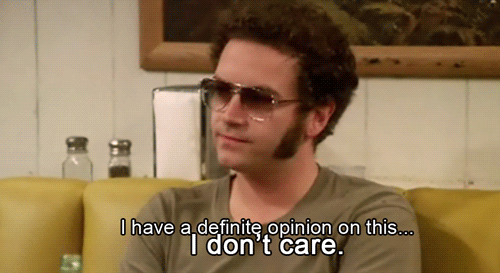Rabbler is the latest Singapore-based mobile app to be listed on Betalist. It urges users to discuss issues that are important to them, and to take a vote on social issues that affect them. Its simple slogan “ask, discuss, and raise awareness” belies the undercurrent of Singaporeans ready for a change.
But lest you think Rabbler is just another Hong Lim Park on social media, hold on: this need not be the case, and it all depends on how we choose to use it.

How Rabbler Works
To start off, simply sign up as a Rabbler Beta user, and wait for an invitation to join the Beta group of Rabblers (I’m assuming that’s what the community will call themselves). Users might notice that there is no contact information provided for them to give feedback, which might be a slight inconvenience to some. It’s also pretty ironic, especially for a platform meant to encourage verbal discourse.
But since Rabbler is still in its infancy stage (it was published on Betalist only a week ago), all is forgiven.
Overall, I would say Rabbler isn’t the most engaging app out on the market…yet. For one, it does tap on crowdsourcing for content, and perhaps for this reason, Rabbler still seems to be in the process of shaping its culture. There are a wide variety of polls on the app, and Beta users recognise the good polls from the bad ones — the former usually involve questions that entail some sort of moral dilemma. The bad ones, unfortunately, are likely to be left unanswered for eternity.

Apart from some minor glitches, Rabbler holds a lot potential for consumers and businesses, especially since it stands as an independent app, and not as the usual add-on tool for businesses.
One key function currently available on the app is the Explore tab under Feeds. This helps users filter out the Newsworthy polls from those made just for fun, which is a good way to get a quick feel of what the public sentiment is on the latest happenings.
Also, each Rabbler gets his/her own handle (like Twitter), and can subscribe to people whose polls you want to have a say in. So for instance, you could subscribe to a friend who creates polls relating to the existence of the bell curve god (university students would know this), or to a company who conducts polls to find out if people would like trains to run 24-hours on weekends.
It’s very intuitive to use, but will Singaporeans brought up in a mind-your-own-business culture care to use Rabbler at all?

Why Your Opinions Matter
Rabbler puts the power of the people at the centre of attention. Not literally, of course, since Rabbler is unlikely to be able to exact direct change on our environment — but it does show what issues people care about.
You might think that in the grand scheme of things, opinions are just opinions. If they are personal truths that do not coincide with what the majority thinks, do they still matter?

And you wouldn’t be wrong to think that. After all, we do see people like Amos Yee getting berated for his insensitive comments and videos, so we know that the consequences of opinion-sharing is not always good.
However, there are times when opinions do stimulate actions — actions that contribute to the greater good. While it is not clear as of yet how effective Rabbler will be in bringing about positive changes, what we do know is that Singapore doesn’t need another all-talk-no-action platform.
Like many voting platforms, Rabbler faces the possibility of drifting away from its original agenda of promoting awareness and conversations, to one that perpetuates shaming and bickering. Thus, apart from the need for Rabbler admins to be vigilant, it’s crucial that Rabblers understand that every opinion matters, even if it differs from the norm. And this might be the biggest challenge faced by Rabbler.
There isn’t much room for discussion on Rabbler, simply because it presents opinions in clear categories: agree and disagree, first to last, black and white. There are definitely pitfalls in using this form of presentation, as it forces you to pick a side, and leave your elaborate discussions — offensive or intellectual — for a more private space.
That said, perhaps the greatest lesson that Rabbler could teach us is that if you ever find yourself on the losing side, there is really no harm in that.










